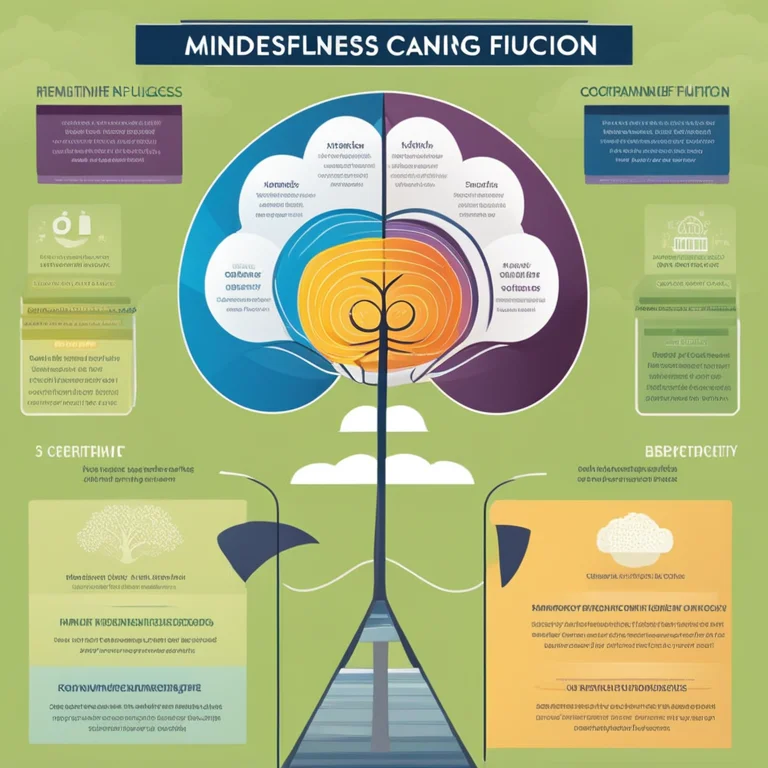
Mindfulness Meditation: Ace Your Exams with Calm
Discover how mindfulness meditation can improve focus, reduce exam stress, and help you prepare for academic success with practical techniques and tips.
article by Hina Kurosawa
Introduction to Mindfulness and Studies
Meditation has long transcended the boundaries of spiritual practice and found its place in the academic and professional worlds. Mindfulness, a practice that encourages participants to stay present and fully engaged with the current moment, has been shown to reduce stress and increase concentration. For students facing the pressure of exams, adopting mindfulness meditation techniques can be a game-changer. With a focus on the present, it becomes possible to push aside fears of potential outcomes, freeing the mind to engage fully with the study material.

The Science Behind Mindfulness for Learning
Research into the relationship between mindfulness and cognitive function has yielded encouraging results. Neuroimaging studies suggest that meditation can actually change the structure and function of the brain, leading to improved attention and concentration. These changes create an ideal mental environment for learning, retaining, and recalling information—core components of academic success. As we move into 2024, educational institutions are increasingly acknowledging the benefits of mindfulness training in their curricula.

Reducing Exam Stress with Mindfulness
Exams are a significant source of stress for students. This stress can negatively impact performance and mental well-being. Mindfulness helps manage this stress by grounding students in the present and reducing the tendency to ruminate on past performances or future outcomes. Techniques such as focused breathing and body scans can help students maintain a sense of calm as they approach their exams, optimizing their mental state for high-stakes testing.

Practical Mindfulness Techniques for Exam Prep
There are several practical techniques that students can use during their study sessions. Guided imagery, for instance, brings about a state of relaxation and focus by having individuals visualize a calm and safe environment. Another useful method is the "STOP" practice: Stop what you are doing, Take a few deep breaths, Observe your body and emotions, and Proceed with your task. Incorporating these techniques into daily study routines can help students remain centered and attentive to their studies.

Incorporating Mindfulness into Daily Routine
Mindfulness doesn't have to be a standalone practice; it can be seamlessly integrated into a student's daily life. This could be as simple as performing mindfulness exercises during short breaks between study sessions, or starting each day with a mindfulness meditation to set a balanced tone. By making mindfulness a habit, students enhance their ability to focus during both studying and taking exams.
Future Outlook: Mindfulness in Academic Achievement
As we look towards the future, the integration of mindfulness in educational settings is becoming more pronounced. With the rise in awareness of its benefits, mindfulness programs are likely to become a staple in schools and universities, offering students the tools they need to thrive academically. The application of mindfulness in education promises to foster not just better exam results, but a more balanced approach to learning and personal development.
Published: 1/9/2024
Modified: 1/9/2024
More predictions
Come back here soon to learn more about yourself and your future


The Many Benefits of Regular Meditation
Discover how meditation can enhance your mental, emotional, and physical well-being, contributing to a more balanced and fulfilling life.


The Harmony of Sleep: Discovering Serenity Through Meditation Music
Embark on a journey to tranquil slumber with meditation sleep music, the sonic backdrop for restful nights and rejuvenating mornings.


Meditative Motion: The Dance of Calmness
In 'Meditative Motion: The Dance of Calmness,' we delve into the practice of mindfulness through movement, offering a path to tranquility for the body and soul.